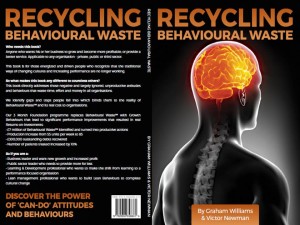Why do Lean Programmes fail?
Research suggests that over 70% of all lean programmes fail. If you’d like to see some research about what might be the why then this link is useful http://www.lean.org/Search/Documents/352.pdf
Yet during my years in the oil&gas, construction and retail industries I’ve implemented many successful lean programmes. Not all were perfect, but all were successful and some were done in record time. Some teams were forced together, mostly multi-disciplined by need, many given what seemed an enormous task again driven by the demanding nature of the business.
We also had no real concept of the origins of lean programmes in Toyota and our approach was focused on our business – it was simply known as a Business Process Review, BPR.
So why did we have success?
The simple answer is people made it happen. It’s all too often that Lean Programmes know that people count, but do nothing or not enough to make the people effect have the right or the best impact. The focus is all on the process and assumptions are made that people want the change, or are prepared to change but they are are assuming something that may actually not be there.
The issue as we now know is what we term Behavioural Waste™, and organisations have so much of it that before you enter a change programme, you need to change attitudes and behaviours first. If you eliminate or significantly reduce Behavioural Waste™ , any improvement is possible and innovation, creativity, engaged employees, inspired leaders become everyday norms not exceptions.
Recyling Behavioural Waste™
The great thing about our behaviours is that if we want to change them we can – we have a choice. The hardest part is to define or assess what we actually do and then simply by raising our awareness we can then decide to do something different to improve.
You can therefore recycle the bad stuff and improve. To show you what’s possible this new book is for you.
Key Messages from this book:
1. There’s no point in trying to grow your business if you are currently busy doing the wrong things. You won’t have time to adopt new approaches. Begin by reducing wasteful behaviour to create the space to grow purposeful behaviour.
2. People like doing lean, fixed systems or efficiency exercises because it focuses attention onto processes, which are seen as impersonal, and thus avoids the issue of having to change your behaviour. Behavioural Waste™ is the largest hidden cost that businesses fail to account for.
3. When people talk about culture, they don’t realise that they may have already chosen to fail because talking about the culture of an organisation doesn’t help solve the problem of what in particular, needs to change. The real cultural issue is everyone’s contribution to the accumulated Behavioural Waste™ that is collectively strangling your purpose. If you have purpose that is meaningful, you can empower people to say “no” to futile, wasteful working,
and to innovate usefully.
4. Behavioural Waste™ is parasitic. The old Parkinson’s Law quotation that work expands to fill the time available for its completion is only partially true. In reality it is unchecked Behavioural Waste™ that expands to cripple meaningful purpose.
5. When people understand their own Behavioural Waste™, as well as the consequences of that Behavioural Waste™ on other people’s behaviour, and begin to control and reduce it then new capacity for growth begins to appear and people have time to consciously think and to innovate.
If you’d like a free digital copy then email us at growth@mindfitltd.com with your organisation’s details.
As ever you have a choice.
-
want to Recycle Behavioural Waste?
-
continue to do what you do?
-
do something else?
What’s your choice?
Is Recycling Behavioural Waste your missing link?


